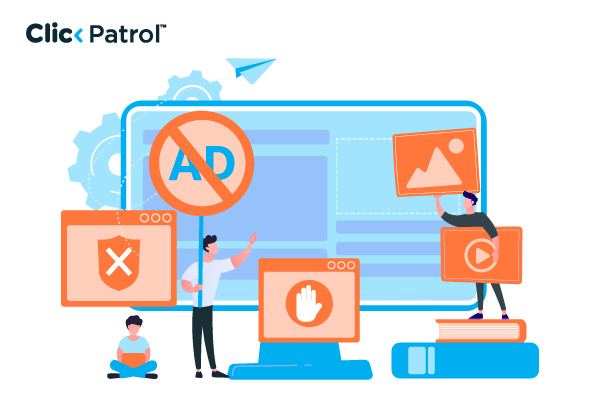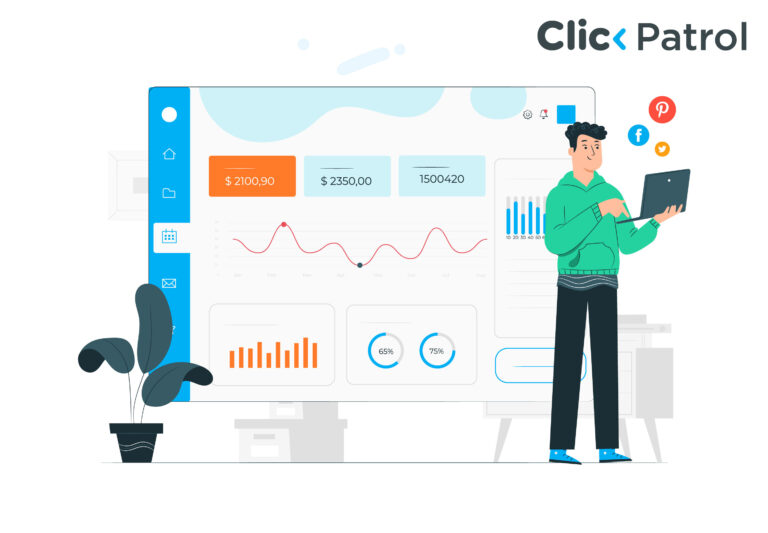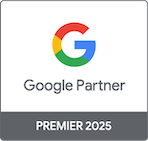Click fraud increases during the holiday season because advertisers push more budget into paid campaigns at the same time that scammers and automated tools are more active. Higher CPCs and intense competition create more opportunity for fraudulent actors to drain budgets, test stolen cards or probe checkout flows through fake clicks.
How PPC Advertisers Can Avoid Holiday Scams, Fraud And Fake Clicks
Abisola Tanzako | Nov 20, 2025

Holiday shopping peaks every year, and so do scams, fraud and fake clicks. While consumers are warned about phishing emails and too-good-to-be-true offers, performance marketers face a quieter risk in the same period: invalid traffic draining paid media budgets just as auction prices hit their annual high.
Table of Contents
- Holiday scams spike: what public data tells us
- Key fraud patterns performance marketers should watch
- Why holiday click fraud hurts PPC performance more than usual
- From consumer scam alerts to PPC protections
- How ClickPatrol detects and blocks holiday fake clicks in real time
- Practical steps for protecting holiday PPC budgets from scams and fraud
- Why clean holiday traffic data matters for 2026 planning
From our vantage point at ClickPatrol, we see a consistent pattern. As retail and ecommerce brands ramp up spend on Google Ads, Meta Ads and Microsoft Ads, fraudsters and opportunistic competitors increase fake activity. The result is more wasted spend, distorted performance data and campaigns that appear to underperform when the real problem is traffic quality, not offer or creative.
Holiday scams spike: what public data tells us
Consumer protection agencies and law enforcement offices repeatedly warn that November and December are the most active months for online scams. Recent seasonal alerts highlight a rise in:
- Fake online stores that collect payment data but never ship products
- Phishing messages impersonating delivery companies, banks or major retailers
- Fraud attempts tied to travel deals, gift cards and charity donations
For PPC advertisers, these same tactics often translate into fake clicks and low quality visits. Fraudsters use botnets, click farms and scripted browsing sessions to test stolen cards, harvest promo codes or probe checkout flows. Every one of those automated visits starts with a click on an ad you paid for.
Key fraud patterns performance marketers should watch
While the public guidance around holiday fraud focuses on individual shoppers, the underlying behavior is directly relevant to paid media teams. We routinely see these patterns in Q4 traffic:
- Surges in repeated clicks from the same devices or IP ranges in a short time window, without any meaningful page engagement.
- Unusual geographic clusters where traffic appears from regions that do not match the brand’s target markets or shipping capabilities.
- Abnormal timing patterns such as heavy click activity in the middle of the night in your primary time zone, coupled with very low conversion intent.
- Referrals to fake checkout pages or cloned product pages that mimic your brand to trick shoppers.
These signals are common when scammers use your ads to reach legitimate users with misleading offers, or when automated tools crawl your landing pages for vulnerabilities during the busiest sales weeks.
Why holiday click fraud hurts PPC performance more than usual
Holiday click fraud is not just another cost of doing business. It compounds the structural challenges advertisers already face in Q4:
- Higher CPCs: Competition for key retail and travel terms typically pushes cost-per-click up. Every invalid click is more expensive in Q4 than in quieter months.
- Compressed buying windows: Campaigns often run aggressive short-term promos like Black Friday or last shipping dates. Fraud that hits during a 3 to 7 day sale can wipe out a disproportionate share of budget.
- Skewed optimization signals: Platforms optimize on click and conversion data. If a significant share of clicks comes from fake or low intent users, automated bidding strategies may allocate more budget to the wrong audiences, placements or keywords.
- Misleading channel comparisons: If Google Ads or Meta traffic is more affected by invalid activity than email or affiliate, your performance reports can incorrectly suggest that paid campaigns are less efficient than they actually are.
We often hear from advertisers who think their creative fatigued overnight or that a discount lost its appeal, when the real issue was a spike in fake clicks and unqualified visits during their key promotion period.
From consumer scam alerts to PPC protections
Consumer fraud advisories around the holidays usually recommend steps like verifying URLs, avoiding public Wi-Fi for payments, and double checking order confirmations. Translated to PPC, the equivalent best practices include:
- Verifying landing page integrity: Ensure there are no unauthorized clones of your product pages or checkouts using domains that closely resemble your brand.
- Monitoring abnormal click behavior: Watch for sudden changes in click-through rate, average session duration and conversion rate on priority campaigns.
- Reviewing placement and partner traffic: For display and partner networks, systematically audit where your ads are served and pause low quality publishers showing inflated click volumes.
- Applying IP and device filters: Exclude known suspicious ranges and device fingerprints that repeatedly click without converting.
These steps provide basic protection, but they are hard to execute manually across large accounts running multiple platforms at peak season.
How ClickPatrol detects and blocks holiday fake clicks in real time
ClickPatrol is built to analyze each click from Google Ads, Meta Ads and Microsoft Ads using behavioral and technical data. Around the holidays, we see a clear uptick in anomalies such as:
- Clicks with impossible navigation speeds across pages
- Sessions with no scroll or interaction yet repeated return visits from the same source
- Devices that hit dozens of campaigns and brands within seconds
When our detection systems classify a click as invalid or high risk, we block it from seeing your ads again, and we feed those insights into exclusion lists and platform blocking rules. Over time, this reduces the share of budget consumed by bots, automated tools and abusive repeat clickers.
The result is cleaner traffic data for your holiday campaigns, higher confidence in your conversion numbers and a better basis for scaling winning ad sets and keywords without overpaying for fake engagement.
Practical steps for protecting holiday PPC budgets from scams and fraud
If you manage performance campaigns for retail, travel, delivery services or marketplaces, consider the following checklist before and during your peak season pushes:
Before holiday campaigns go live
- Set clear benchmarks for normal CTR, CPC, conversion rate and average order value from last year to spot anomalies quickly.
- Segment branded and non-branded campaigns so you can detect unusual behavior in each group separately.
- Implement a click protection tool like ClickPatrol across all Google Ads, Meta Ads and Microsoft Ads accounts you manage.
- Define internal escalation paths for suspected fraud incidents so your team can react rapidly during promotions.
During peak shopping weeks
- Review traffic quality metrics at least daily, not just spend and revenue.
- Look for placements, geos or devices with high clicks and low conversions, and act quickly on exclusions.
- Track refund and chargeback patterns with your payments team, since rising disputes can indicate fraudulent behavior sourced through paid traffic.
- Pause or cap campaigns that show sudden spikes in low quality clicks until you confirm the traffic is legitimate.
With these controls in place and automated click protection running, your team can focus more on creative testing, offer optimization and scaling, and less on firefighting invalid traffic issues.
Why clean holiday traffic data matters for 2026 planning
Holiday campaign performance often guides budget decisions for the following year. If your Q4 data is inflated with fake clicks, your year-on-year comparisons and channel allocation decisions for 2026 will be distorted.
By filtering out invalid traffic in real time, ClickPatrol helps ensure that your reported metrics reflect actual user intent. That means your analysis of which keywords worked, which audiences converted and which platforms contributed real revenue is based on trustworthy numbers, not noise generated by scammers and bots trying to exploit holiday demand.
For advertisers preparing for upcoming peak seasons, this is the time to tighten fraud defenses, not just expand budgets. If you want to see how much of your current spend may be lost to invalid activity, you can start a free trial of ClickPatrol or speak with our team about a detailed traffic quality review across your Google Ads, Meta Ads and Microsoft Ads accounts.
Frequently Asked Questions
-
Why does click fraud increase during the holiday season?
-
How can I tell if my holiday PPC traffic is affected by scams or fake clicks?
Warning signs include sudden spikes in clicks without matching conversions, high volumes of repeated clicks from the same IP ranges or devices, unusual geographic clusters outside your target markets, and abnormal engagement metrics such as very short sessions with no scroll or interaction. Comparing these patterns against your historical holiday benchmarks helps confirm whether fraud is likely.
-
What impact does holiday click fraud have on my ad budgets and performance?
Holiday click fraud wastes budget when CPCs are at their highest, so every invalid click is more expensive than usual. It also skews the data used for bidding and optimization, which can push more spend toward poor quality placements, audiences or keywords. This makes holiday campaigns look less profitable and can lead to wrong budget and strategy decisions for the following year.
-
How does ClickPatrol help protect my Google Ads, Meta Ads and Microsoft Ads during peak season?
ClickPatrol analyzes each click using behavioral and technical signals to identify abnormal patterns such as repeated non-converting visits, impossible browsing speeds or suspicious device fingerprints. When a click source is classified as invalid or high risk, ClickPatrol blocks it from seeing your ads again and updates platform exclusions, helping you keep holiday budgets focused on real users and improving the accuracy of your reported metrics.
-
What practical steps should I take now to reduce holiday scams and fraud on my PPC campaigns?
You should benchmark last year’s performance metrics, segment branded and non-branded campaigns, set up daily traffic quality reviews, and define clear rules for pausing or capping suspect campaigns. Implementing a dedicated click protection system like ClickPatrol across all your accounts before peak season starts gives you automated blocking and better data, so you can react quickly if you see unusual patterns during key promotions.






